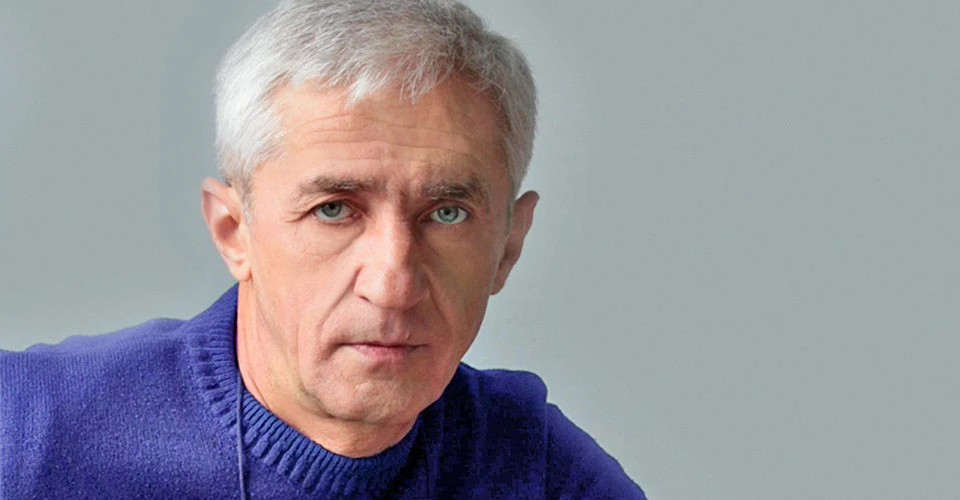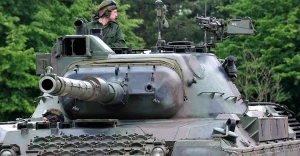
That's what NATO is for
Ukraine needs a political invitation to join the Alliance to accelerate army reform and get rid of Russian agents of influence in the government
It's a strange thing how people tend to keep falling into the same traps, not really taking into account the fact that reality has changed radically. In order not to look unseemly in really not-so-good situations, they build whole mountains of words, not very convincing arguments, or simply remain silent in response.
Recently, several Western publics have been talking about the so-called "Finlandization" of Ukraine to the tune of a forgotten song. That is, according to the authors, in the context of Suomi's membership in the North Atlantic Alliance, Ukraine can now take over the role of a "neutral" in Eastern Europe. And the wolves are fed and the sheep are intact... They say that Putin will get rid of his main fear, end the war, and everyone will breathe a peaceful sigh of relief.
Adding fuel to the fire of passions around another attempt to "flatter" the Kremlin war criminal, the Financial Times reported that four unnamed people involved in the preparation of the upcoming NATO summit in Vilnius were quoted as saying. They allegedly stated that amid the growing number of supporters of Kyiv's "political" path to NATO, which should be enshrined in the final document of the meeting, three countries are categorically against it: the United States, Germany, and Hungary. That is, they prefer to keep the doors of the bloc open for Kyiv, but no more…
I understand that such insights should be treated with great caution, especially since the Western media, as the last week has shown, are not models of quality journalism. In particular, this applies to the "leak" of secret documents about the upcoming Ukrainian counteroffensive and the fact that Washington is not very open with its allies, spying on them as well as on officially recognized opponents.
“A triumvirate seems quite likely, because of the presence of Hungary and Germany there. Budapest's position has already been discussed, and its politicians are ready to throw themselves under tanks to prevent the Ukrainian flag from being raised in front of the bloc's headquarters. As for Germany, I will limit myself to one remark: it was Angela Merkel who stood up against the Membership Action Plan for Ukraine at the historic NATO summit in Bucharest in 2008, after Putin's Munich speech.”
And yet, you must admit, the triumvirate seems quite likely, because of the presence of Hungary and Germany. Budapest's position has already been discussed, and its politicians are ready to throw themselves under tanks to prevent the Ukrainian flag from being raised in front of the bloc's headquarters. As for Germany, I will limit myself to one remark: it was Angela Merkel who stood up against the Membership Action Plan for Ukraine at the historic NATO summit in Bucharest in 2008, after Putin's Munich speech. This demarche of the German Chancellor actually unleashed the Russian dictator, who attacked Georgia a few months later and, having satisfied his interest in the possible reaction of the West (which in fact did not exist), began preparing for war in Ukraine. Thus, if Germans have already forgotten their guilt over World War II, they may well revive it by remembering Ukraine.
But the position of the United States looks somewhat strange. Kyiv's most powerful partner in the war against Russia cannot a priori oppose such a symbolic invitation to join the Alliance. Everyone knows the bipartisan solidarity of US congressmen in supporting resistance to Moscow. President Biden's position is also on the table: no compromises with war criminals, and assistance to Ukraine with weapons and funds, at least until the Ukrainian Armed Forces return to the 1991 borders. In any case, we hear about this and other things in the public statements of American politicians and the military.
Yes, of course, doubts can only arise from Ukrainian realities. And not so much from the military point of view (despite the fact that Ukrainian soldiers are intensively learning to master foreign weapons, they themselves can give master classes to their colleagues from the Alliance armies), but from the political point of view.
“The recent scandals with the exposure of the FSB spy network in the top leadership of the Ukrainian Security Service, as well as the presence of Russian agents of influence at the highest levels of the Ukrainian government, have also not gone unnoticed by our allies”
The recent scandals with the exposure of the FSB spy network in the top leadership of the Ukrainian Security Service, as well as the presence of Russian agents of influence at the highest levels of the Ukrainian government, have also not gone unnoticed by our allies. And amid the inability to protect their own secrets from the "all-seeing eye" of Moscow's legion of spies, the United States may be blowing cold when deciding whether to invite Ukraine into the structures of the military bloc in which it plays a dominant role. The motives behind President Zelenskyy's strange desire to talk to the Chinese leader – not yet realised, but not rejected – remain unclear, and for Washington, Beijing is still a significant irritant when it comes to the possible Taiwan crisis.
However, experience shows that Ukraine needs an external impetus to correct its own mess ups and outright mistakes. That's what NATO is for, i.e., a political invitation to join the Alliance in Vilnius, to eliminate the missteps on the way to real membership. And falling into the same traps, an "open door" in which one constantly has to keep a foot on the "gap", sows doubts about how serious the allies' plans for a world without "buffer zones" and dictatorships are.
About the author. Ihor Hulyk is a journalist and editor-in-chief of the Espreso website.
The editors do not always share the opinions expressed by the authors of the blogs.
- News














































